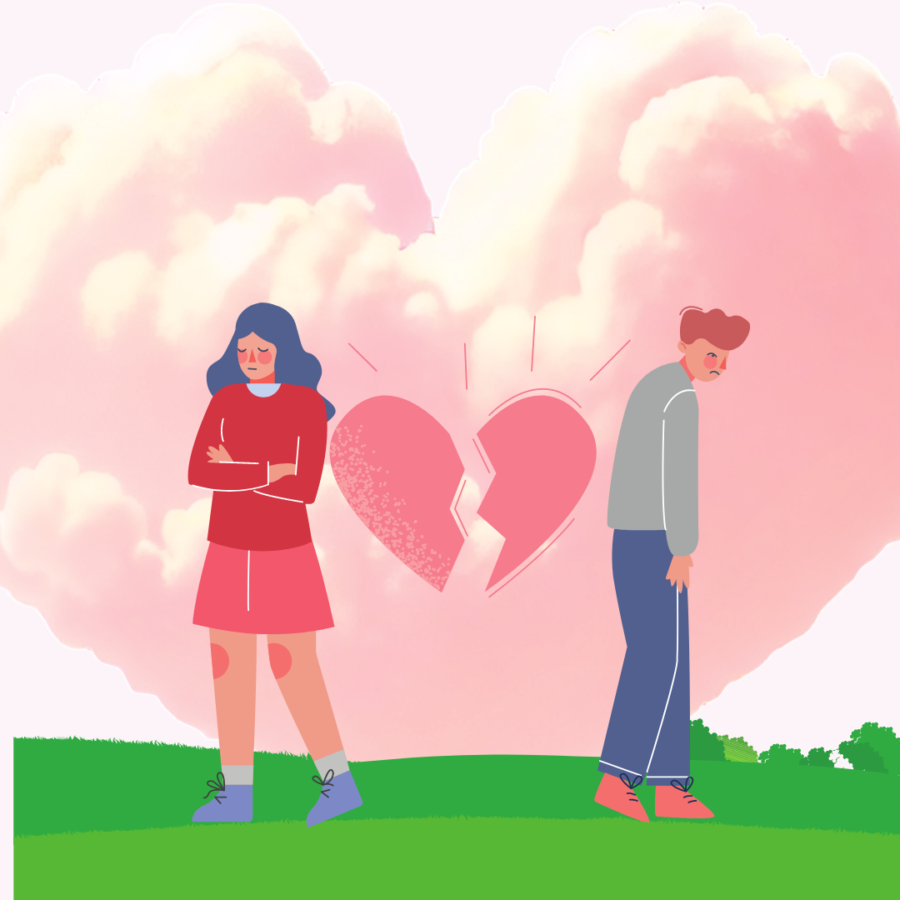The insanity of love, adolescence and facing consequences
Teenage love, while sometimes violent and harmful, can similarly be passionate and is something no one should avoid.
April 7, 2023
Teenage couples are a rough topic. Love, and more commonly for teenagers, infatuation, like all feelings, is unavoidable. But for the emotional teen already handling changes within the body and mind, love is life or death. It is social relevance, power, escapism and validation. Teens see throwing away love as entirely impossible and even unfathomable.
For all the Romeos and Juliets in the world, adolescent love mixed with tragedy seems like just another part of life. But what Shakespeare warns us about is increasingly relevant: two young lovers, held captive by the intensity of their emotions, making rash decisions with no regard for consequence. It’s easy for teen romance to turn sour at the drop of a hat. And for the young developing mind, a harmful or abusive relationship is the last thing one should be in.
So how do we stop harming ourselves, while keeping loving relationships?
We are taught early on that nobody is complete without another person. From our prince charmings and sleeping beauties, we learn what love should look like. We have created the image of an ideal relationship, and we place that golden standard for relationships over our own well-being.
For example, the show Euphoria portrays lovers Maddy and Nate as an insanely toxic pair; despite Maddy’s outward confidence, she is constantly belittled by Nate, whose abuse ranges from verbal to physical. Regardless, Maddy still loves him, viewing his violence as passion, and her development is stunted by staying with him.
Often, characters are so relatable, it’s hard to distinct reality from fiction. The worry, of course, is that regardless of the adult content in Euphoria, the main demographic is teenagers. It is easy for teenagers to see this type of dark romance and think they deserve the same. For Maddy and Nate the reason why their relationship is so enticing to watch is because of all their ups and downs, which desensitizes our youth to the severity of domestic abuse in any and all forms. Roughly 1.5 million high school students nationwide experience physical abuse from their partners in a year, and according to the organization Love is Respect, only 33% of those teens in abusive relationships told anyone about the abuse.
This raises the question: do we as a generation truly know what love is? Have we been taught wrong, are we living a lie? Is this why love is so harmful, or is it something out of our control entirely?
Well, if we’re taking the scientific route, when we start developing a crush, our brains release androgens. As we get older, we have surges in testosterone and other hormones that produce sexual thoughts. Teens also experience an excessive release of serotonin and dopamine when in love.
In this euphoric trance, your mind turns into mush. Teens in this state of mind often act on impulse and ususally regret their actions once they come down from their high.
In fact, teens in abusive relationships are more than twice as likely to continue having harmful relationships, abuse substances or become suicidal as an adult.
But the reality is that feelings are unavoidable. Love should never be something to be afraid of. Love provides lessons, experience and growth that is crucial to moving forward in life. The key to a healthy relationship is to be aware of the mental consequences that come along.
Seeing the signs of an abusive relationship can be tough for anyone. But if we learn how to separate fiction from reality and distinguish violence from love, maybe we can save ourselves some of the pain that comes with our naive teenage love.



